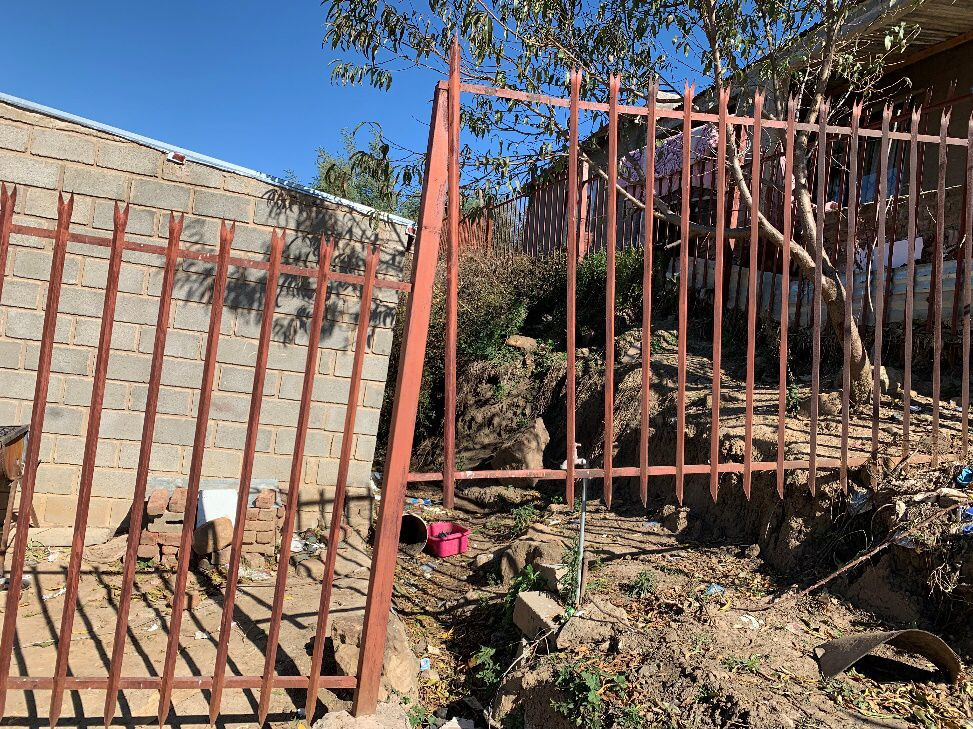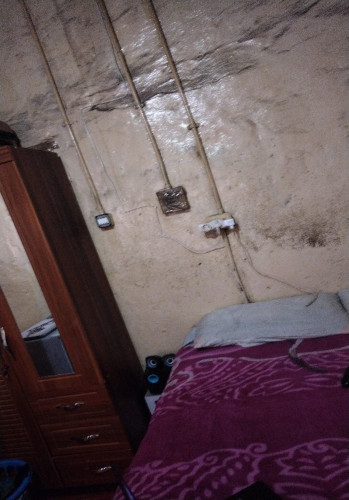NSFAS CEO Andile Nongogo explains how the Student Accommodation Portal will increase lodging capacity, safety and security for beneficiaries
Accommodation for the National Student Financial Aid Scheme’s (NSFAS) funded students has long been a bone of contention throughout the years. This is mainly due to various challenges affecting students and accommodation providers. Finding the balance between what is deemed a conducive living environment for the students and what accommodation providers bring to the table and establishing what all parties involved believe should form part of the Norms and Standards for student accommodation remains the scheme’s pain point.
After several engagements with relevant stakeholders such as students, student leadership, institutions and accommodation providers and a visit to some of the NSFAS-funded student accommodation site, it was evident that a more thorough and hands-on approach with the scheme as the driver, was obligatory.
A sit down with NSFAS Chief Executive Officer, Mr Andile Nongogo, gave an insight into the organisation’s plan to mitigate the identified issues and kick-start solutions towards sustainable accommodation for NSFAS-funded students.
Accommodation challenges affecting NSFAS-funded students, institutions and accommodation providers
 There are challenging living conditions for some students in institutions across the country. Photos: Supplied
There are challenging living conditions for some students in institutions across the country. Photos: Supplied
The NSFAS Board and management conducted site visits to universities and Technical and Vocational Education Training (TVET) colleges across the country to witness first-hand the issues related to student accommodation.
The following key challenges were identified in both private and institution-owned accommodation:
- There are insufficient beds to accommodate students, and some institutions do not have their own accommodation.
- There are instances where the state of both private and institution-owned accommodation is not conducive for student accommodation and learning.
- There is no uniformity in the cost structure of university-owned accommodation, and Private Accommodation Providers (PAPs) were not properly regulated.
- There are instances where allowances paid by NSFAS for student accommodation are used for purposes other than what is intended and authorised.
The PAPs accreditation process is conducted by institutions and is fraught with inconsistencies; it is susceptible to fraud and corruption, while other institutions do not have the capacity for this accreditation process.
Some of these challenges have been previously identified and confirmed by a 2011 report compiled by a Ministerial Committee appointed to review the provision of student accommodation at universities and benchmark South African universities against each other as well as against international institutions operating in similar environments; an initiative by the Minister of Higher Education and Training.
According to Mr Nongogo, NSFAS spends a significant amount of money on student accommodation and should therefore have a significant influence on how the money is spent. Thus, NSFAS decided to take a proactive role in student accommodation for NSFAS-funded students. He said this would be done through the scheme’s administration of the entire student accommodation approach and increasing student accommodation capacity for NSFAS funding beneficiaries.
“Last year, we spent approximately 12 billion on student accommodation, yet we had no say in costings and we were not part of the process of accrediting accommodation. The decision was made for NSFAS to be fully involved in the process to manage costs and prevent susceptible fraudulent instances”, said Mr Nongogo.
He went on to unpack the Scheme’s proposed solutions, emphasising that all relevant stakeholders will be consulted and taken with through the journey and such consultations have started.
Administration of Student Accommodation
Student Accommodation Portal
The process to develop an online Student Accommodation Portal has commenced. The portal will allow the accreditation of accommodation providers, grading of the proposed accommodation, assigning the cost-based grading, and allocating accommodation to students. Additionally, students will be able to log queries related to their allocated accommodation, such as maintenance requests and relocation requests, on the portal. This process will apply to both privately and institution-owned accommodation.
Accreditation of accommodation
While this function was left to institutions, there have been instances where accommodation has been accredited without meeting the minimum standards. NSFAS will ensure that a team is deployed to assess the state of accommodation registered on the portal for purposes of accreditation, to this end NSFAS is in the process of appointing service providers to increase the accreditation capacity. The NSFAS process to accredit accommodation will still be in line with the Department of Higher Education and Training’s Minimum Norms and Standards.
Grading of accommodation
The approach that will be followed in the grading will be similar to the one that is used in the hospitality sector, however, based on the minimum norms and standards on student accommodation and will take into account rural and urban circumstances. Some of the factors to be considered will include amenities, a close link to the student-village concept, proximity to campus, availability of transport and security.
Costing accommodation
Once the process of grading is complete, NSFAS will pay based on the grade. This process will also allow NSFAS to determine and decide what it is prepared to pay thus making savings in the process. NSFAS will work with DHET and DBSA (as it has a model to determine the cost) in assigning costs to grades.
Assign students to available accommodation
NSFAS beneficiaries are often last on institutions and PAPs’ accommodation lists due to the perception of non or late payment. To avoid this, a potential beneficiary will be required to indicate whether they need accommodation when they apply for funding. Once registered at an institution they will be required to upload their proof of registration on the accommodation portal and will be assigned accommodation. This process will consider issues of proximity to campus, especially for first-year students. The aim is to provide certainty to students about accommodation, ideally before they leave home in pursuit of their studies.
Payment of accommodation providers
Through the new system, NSFAS will enter into direct lease agreements with institutions and PAPs thus alleviating the burden on students of having to negotiate their own lease agreements, and also abolish the practice of cash allowances which are sometimes the source of fraudulent behaviour. This will further provide comfort to existing and potential PAPs in making their properties available to NSFAS beneficiaries.
Increasing Student Accommodation Capacity
NSFAS seeks to play an active role in ensuring that the supply of student accommodation grows. Agreeing that this is mainly the role of the Government through DHET, Mr Nongogo alluded that the severity of the shortage requires collaborative efforts by all stakeholders, including private parties such as financiers, accommodation providers, institutions etc.
“As part of the consultative process, NSFAS held a student accommodation summit in June 2022 and Public, Private Partnerships (PPPs) on student accommodation provision was one of the topics that took Centre stage,” he stressed.
Understanding the importance of adhering to the Public Finance Management Amendment Act (PFMA) while working with the private sector, NSFAS sought to engage with the National Treasury to understand what is allowed in terms of the PFMA and National Treasury guidelines in support of increasing capacity of student accommodation through PPPs.
To this end, the scheme is in the process of preparing the necessary submissions with the aim of entering into these arrangements with competent providers.
Over and above PPPs NSFAS is exploring the idea of issuing off-take agreements to potential developers of student accommodation targeted at NSFAS beneficiaries. NSFAS is finalising the criterion to be used in evaluating applications for these off-take agreements with the aim of issuing this call before the end of 2022.
 Some students rent ‘backroom’ accomodation.
Some students rent ‘backroom’ accomodation.Small accommodation providers (“backrooms”)
NSFAS recognises the contribution of small providers commonly known as backrooms, particularly in rural campuses and township campuses. While NSFAS intends on making sure that all accommodation meets the minimum standards, it is exploring ways and a developmental approach to include these types of accommodation. Developments in this space will be communicated accordingly.
Asked whether the proposed process is the solution the sector has been waiting for, the CEO shared that he does not expect the roll-out to be a walk in the park, adding that as with any new rollout there are bound to be glitches, however, the scheme cannot be held back from implementing a possible solution for fear of failing.
“The well-being of a student will contribute to their success and if they are staying in an environment that is not conducive, how do we expect them to succeed?
“There are instances where students exceed their funding years without completing their qualifications, citing circumstances such as living conditions as reasons for failure, and these are some of the unfortunate situations we are trying to manage,” Mr Nongogo said.
The National Student Financial Aid Scheme is an entity within the Department of Higher Education and Training tasked with administering bursaries to students from poor backgrounds who wish to study at a public university or TVET college.